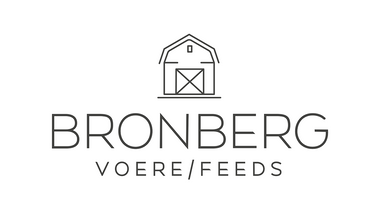AVISHIELD ND
R 80.00
Type:
Medication
| Composition | |
| For active immunisation of chickens and turkeys to prevent mortality, clinical signs and lesions of the Newcastle disease. Immunity begins to develop 6 days after vaccination. Duration of immunity: 35 days post vaccination. | Indications |
| Do not use in unhealthy or stressed birds | Contraindications |
| Respiratory disturbances after intranasal/ocular route of administration may occur. These symptoms could last at least two weeks. If you notice any serious effects or other effects not mentioned in this package leaflet, please inform your veterinary surgeon. | Adverse reactions |
| Chickens and turkeys. | Target species |
| The vaccine can be used in three ways - oculonasally, in drinking water and spray. Method of application depends on the epizootiological situation, age category and number of animals. Vaccine can be administered to 1-day old chicks and older chickens by coarse spray or by the oculonasal route of administration. Chickens can be vaccinated by the in-water route once birds are shown to be drinking well from the drinker system in use. Turkeys can be vaccinated from 14 days of age by coarse spray, by the oculonasal route of administration or by the drinking water route. 1. Oculonasal administration Suspend 1000 doses of the vaccine in 100 ml distillate water. A dose of reconstituted vaccine is 0,1 ml, i.e. two drops, irrespective of poultry age, weight and type. Instil one drop into the eye and one drop into the nose opening. 2. Administration in the drinking water Suspend the vaccine in cool and clean water without traces of chlorine, other disinfectants or impurities in a number of doses corresponding to the number of birds to be vaccinated. Vaccine should be suspended immediately before use. The volume of water for reconstitution depends on the age of the birds, breeds, the management practice and weather conditions. In order to determine the quantity of water in which vaccine will be suspended for the vaccination of chickens in a younger age category (until third week of life), the following are guidelines: - multiplying the number of birds in the thousands with the day of life (e.g. 1 thousand of chickens in the 7th day of life = 1 x 7 = 7 L) It is important to dissolve the vaccine in the amount of water which will be drunk within 1.5 - 2.5 hours (taking into account the different types of drinking systems for poultry). In order to make the birds thirsty, withdraw the supply of drinking water up to 2 hours prior to immunisation (depending on the air temperature). Always make sure that there is food available when vaccinating. Birds will not drink if they have no food to eat. The drinking system should be clean, without traces of chlorine, other disinfectants or impurities. 3. By spraying It is recommended to resuspend 1000 doses of the vaccine in 150 - 300 ml of distilled water. The number of doses diluted corresponds to the number of birds in a flock.The volume of water for reconstitution should be sufficient to ensure an even distribution when sprayed onto the birds, and will vary according to the age of the birds being vaccinated and the management system. The reconstituted vaccine suspension should be spread evenly over the correct number of chickens, at a distance of 30 - 40 cm using a coarse spray, preferably when the chickens are sitting together in dim light. The spray apparatus should be free from sediments, corrosion and traces of disinfectants and ideally should be used for vaccination purposes only. |
Administration & dosage |
| All the birds in the flock should be vaccinated at the same time. | Advice on correct administration |
| Zero days. | Withdrawal period |
|
Special warnings for each target species: In any population of animals there are individuals who respond poorly to vaccination. Immune responses affect depend on hereditary factors, subclinical diseases, physical condition, stress, concomitant use of other veterinary medicinal product, and whether the vaccine was appropriately stored and applied. It is particularly important that in the period after vaccination birds are properly kept and fed. The vaccine strain can spread to susceptible, unvaccinated birds. The spread does not induce clinical signs but may lead to seroconversion in unvaccinated birds. Special precautions for use in animals: All the birds in the flock should be vaccinated at the same time. Special precautions to be taken by the person administering the veterinary medicinal product to animals: Care should be taken when handling and administering the vaccine. Newcastle disease virus can cause a mild transient conjunctivitis in the person administering the vaccine. Well-fitting masks and eye protection should be worn when handling the product. Hands should be washed and disinfected after vaccinating. |
Warning |
| Keep out of the sight and reach of children. Store in a refrigerator (2 °C - 8 °C). Protect from light. Do not use this veterinary medicinal product after the expiry date which is stated on the label and carton. Shelf life after reconstitution: 3 hours. |


